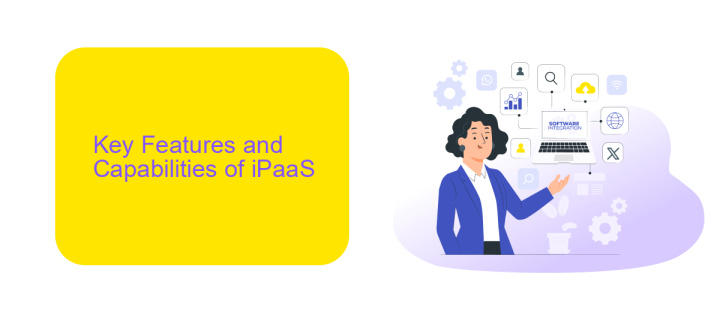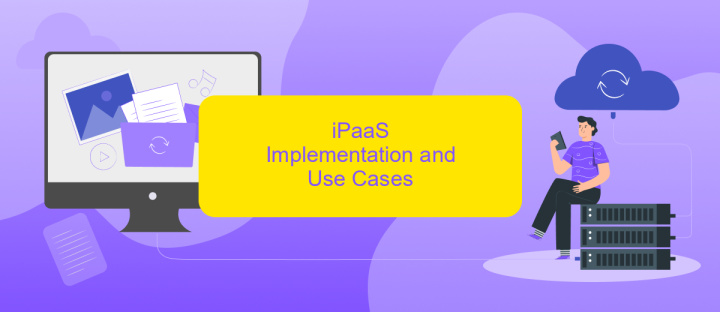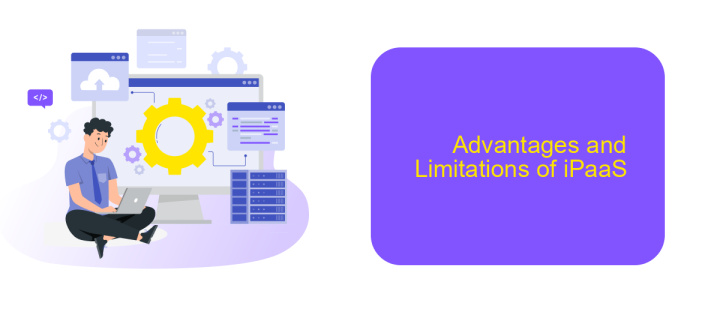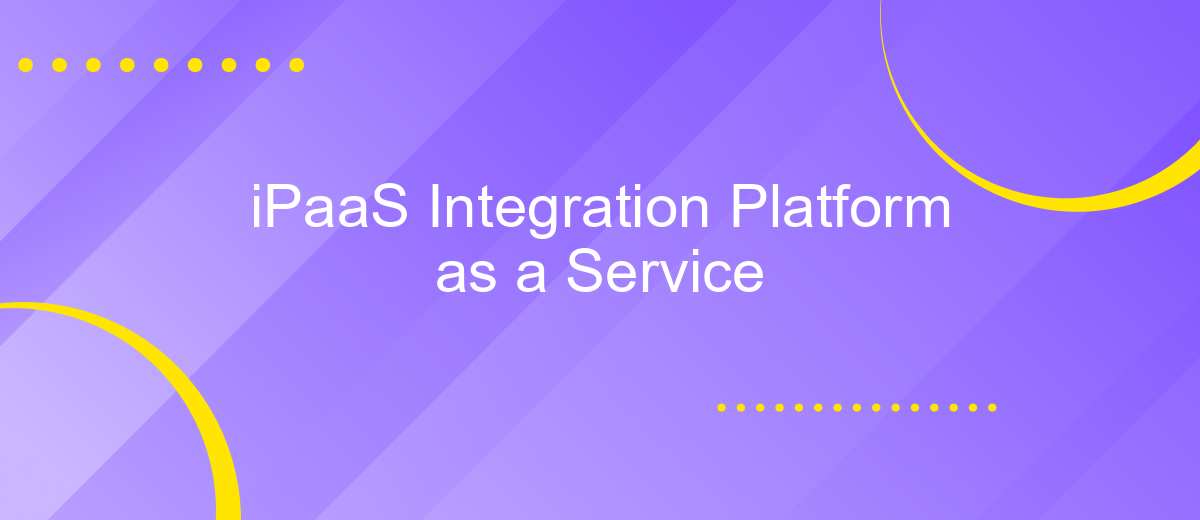iPaaS Integration Platform as a Service
In today's rapidly evolving digital landscape, businesses are increasingly turning to Integration Platform as a Service (iPaaS) solutions to streamline their operations. iPaaS offers a cloud-based platform that enables seamless integration of disparate applications, data sources, and services. This article explores the benefits, key features, and use cases of iPaaS, highlighting how it can enhance efficiency and drive innovation in modern enterprises.
Introduction to iPaaS and its Benefits
Integration Platform as a Service (iPaaS) is a cloud-based service that enables seamless integration of various applications, data, and processes across different environments. By using iPaaS, businesses can streamline their operations and enhance their productivity without the need for extensive coding or manual intervention.
- Automates repetitive tasks and workflows
- Facilitates real-time data synchronization
- Enhances scalability and flexibility
- Reduces integration costs and time
- Improves overall data accuracy and consistency
One notable example of an iPaaS solution is ApiX-Drive, which simplifies the integration process by providing a user-friendly interface and pre-built connectors for various applications. This allows businesses to quickly set up and manage integrations without requiring extensive technical expertise. By leveraging iPaaS solutions like ApiX-Drive, companies can ensure smooth and efficient operations, enabling them to focus more on their core activities and strategic goals.
Key Features and Capabilities of iPaaS

iPaaS (Integration Platform as a Service) offers a comprehensive suite of tools designed to streamline the integration process across various applications and data sources. One of the key features of iPaaS is its ability to provide pre-built connectors and templates that facilitate quick and easy integration. This enables businesses to connect disparate systems without the need for extensive coding or technical expertise. Additionally, iPaaS platforms often come equipped with real-time monitoring and analytics, allowing organizations to track data flows and identify potential issues before they become critical problems.
Another significant capability of iPaaS is its support for a wide range of integration patterns, including application-to-application (A2A), business-to-business (B2B), and cloud-to-ground integrations. Services like ApiX-Drive enhance this functionality by offering user-friendly interfaces and automation features that simplify the integration process. ApiX-Drive, for example, provides an intuitive dashboard where users can set up and manage integrations effortlessly, reducing the time and resources required for manual configurations. This flexibility and ease of use make iPaaS an invaluable asset for businesses looking to improve operational efficiency and agility.
iPaaS Implementation and Use Cases

Implementing an iPaaS solution can significantly streamline your business operations by enabling seamless integration of various applications and data sources. The process typically involves selecting the right iPaaS provider, configuring the necessary connectors, and setting up data workflows. One such efficient service is ApiX-Drive, which offers user-friendly tools to connect a wide range of apps without requiring extensive coding knowledge.
- Identify integration needs and key applications.
- Choose an iPaaS provider like ApiX-Drive for its ease of use and extensive connector library.
- Configure connectors to link your applications and data sources.
- Set up and monitor data workflows to ensure seamless data transfer.
- Regularly update and maintain integrations to adapt to business changes.
iPaaS use cases span various industries and functions, from automating marketing campaigns and synchronizing CRM systems to integrating e-commerce platforms with inventory management solutions. For instance, ApiX-Drive can help businesses automate data transfer between their CRM and email marketing tools, ensuring timely and personalized customer communications. By leveraging iPaaS, companies can achieve greater operational efficiency, reduce manual errors, and enhance overall productivity.
Advantages and Limitations of iPaaS

Integration Platform as a Service (iPaaS) offers numerous advantages for businesses seeking to streamline their integration processes. One of the primary benefits is its ability to connect disparate systems seamlessly, reducing the need for manual data entry and minimizing errors. This leads to improved efficiency and more accurate data management.
Additionally, iPaaS solutions often come with pre-built connectors and templates, making it easier for businesses to integrate various applications and services without extensive coding knowledge. This can significantly reduce the time and cost associated with traditional integration methods.
- Scalability: iPaaS platforms can easily scale to accommodate growing data volumes and increasing integration demands.
- Flexibility: They support a wide range of integration scenarios, from simple data transfers to complex workflows.
- Cost-effectiveness: By leveraging cloud infrastructure, iPaaS reduces the need for expensive on-premises hardware and maintenance.
However, iPaaS also has its limitations. For instance, it may not be suitable for highly specialized or customized integrations that require deep technical expertise. Additionally, businesses must consider data security and compliance issues, especially when dealing with sensitive information. Tools like ApiX-Drive can help mitigate some of these challenges by providing user-friendly interfaces and robust security features.
Future Trends and Outlook of iPaaS
The future of iPaaS (Integration Platform as a Service) is poised for significant growth and innovation. As businesses increasingly adopt cloud-based solutions, the demand for seamless integration across various applications and data sources is expected to rise. Emerging technologies such as artificial intelligence (AI) and machine learning (ML) will play a crucial role in enhancing iPaaS capabilities, enabling more intelligent and automated integration processes. Additionally, the shift towards hybrid and multi-cloud environments will drive the need for more robust and flexible iPaaS solutions that can handle diverse integration scenarios.
One notable trend is the growing emphasis on low-code and no-code platforms, which empower non-technical users to create and manage integrations without extensive coding knowledge. Services like ApiX-Drive are at the forefront of this movement, offering user-friendly tools that simplify the integration process. This democratization of integration capabilities will enable businesses of all sizes to streamline their operations and improve efficiency. As iPaaS continues to evolve, we can expect more innovations that will further reduce complexity and enhance the scalability and reliability of integration solutions.
FAQ
What is iPaaS (Integration Platform as a Service)?
How does iPaaS benefit businesses?
Can iPaaS integrate with both cloud-based and on-premises systems?
How secure is data when using iPaaS?
What types of businesses can benefit from using iPaaS?
Do you want to achieve your goals in business, career and life faster and better? Do it with ApiX-Drive – a tool that will remove a significant part of the routine from workflows and free up additional time to achieve your goals. Test the capabilities of Apix-Drive for free – see for yourself the effectiveness of the tool.

